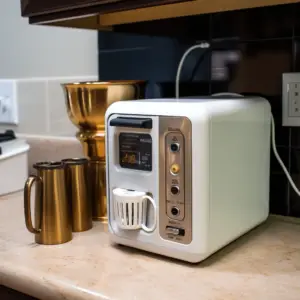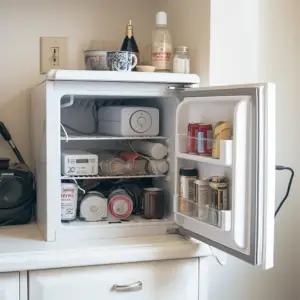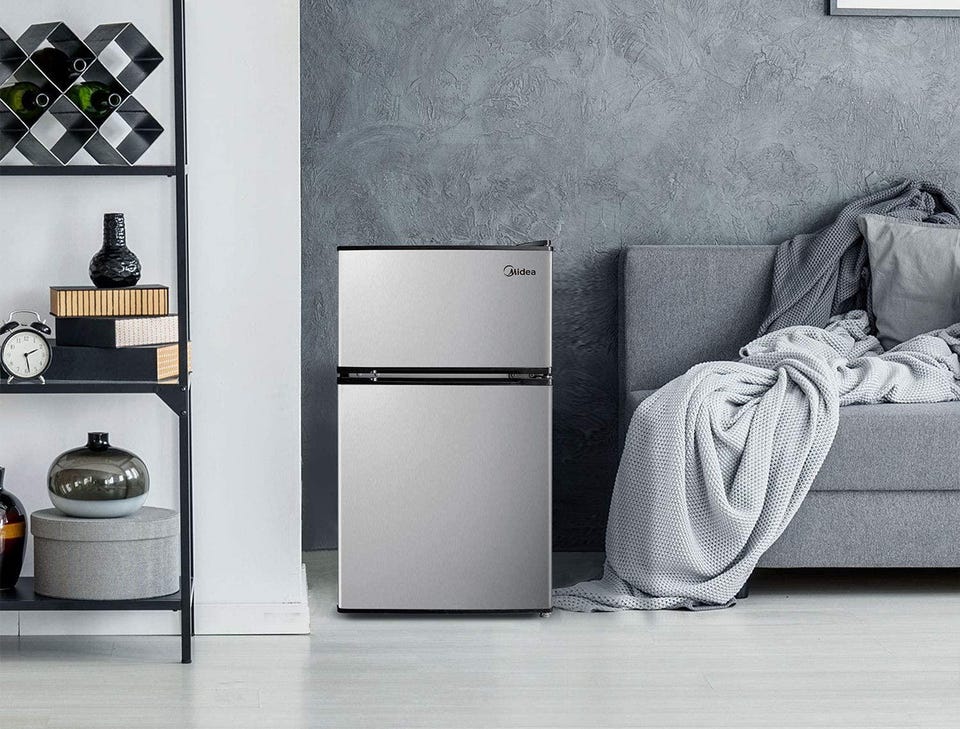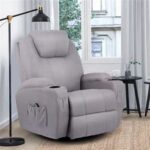Mini fridge outlet requirements, If you are unsure about whether or not your mini fridge needs its own outlet, it’s best to check the manufacturer’s instructions. They’ll tell you exactly what kind of power requirements the appliance has and whether or not you can plug it into a regular outlet. Read on to find out more.
Table of Contents
Does a Mini Fridge Need Its Own Outlet?

Mini fridges aren’t the most powerful appliances, but they’re still energy hogs. If your mini fridge is going to be running all day and your power bill is already expensive, you might want to consider using a separate, dedicated outlet for the fridge. However, this isn’t always necessary. A lot of mini fridges are designed to be plugged into a regular outlet, so you don’t need another one. It will work properly on a standard American outlet without sacrificing any of its functionality or safety.
What is a Dedicated Outlet?
A dedicated outlet is an electrical plug that is used to power a single device. It’s not the same as a regular outlet, which is designed to provide power to multiple devices at once. Dedicated outlets are usually found in homes with older wiring systems or places where they have been installed specifically for certain appliances.
What Are the Benefits of Using a Dedicated Outlet?
Here are just some of the reasons why using a dedicated outlet for your mini fridge is beneficial:
Convenience – The biggest benefit of using a dedicated outlet for your mini fridge is convenience. If you have an appliance like a microwave, toaster, or coffee maker, then chances are you already have an outlet with multiple plugs.
Using a dedicated outlet for your mini fridge means you won’t have to unplug other appliances in order to plug it in. This makes for a more organized kitchen and reduces the chance of an accident or fire. It’s also important that you leave enough space between your appliance and any walls or cabinets so that air can circulate freely around it while it’s running.
Avoid Overloading the Circuit – If you plug too many things into one electrical outlet, it can cause an overload. Overloaded circuits can cause a fire or even damage your appliances.
Energy Conservation – Using a dedicated outlet allows your mini fridge to run more efficiently. If you try to plug it into an extension cord or surge protector, it may not function properly and could end up using more energy than necessary.
Keep Your Appliance Safe From Damage – If you plug your appliance into a standard outlet and something goes wrong, it could cause a fire or electric shock hazard. A dedicated outlet will keep your appliance separate from other devices and ensure that it is not damaged by any electrical issues that may arise.
Sometimes people bump into things while they’re walking around their houses. Having a dedicated outlet can help keep them from being injured by tripping over an extension cord or accidentally pulling on one.
Can You Plug a Mini Fridge Directly Into an Extension Cord?
Extension cords can be dangerous if used improperly because they can overheat or short out when too much current passes through them. If this happens, it can cause damage to the cord and its connected appliances.
Mini fridge outlet requirements have a small refrigerator, you might be tempted to plug it directly into an extension cord. However, this isn’t a good idea for several reasons.
First, extension cords are rated for a certain amount of power, and they can only provide that much. If you plug a small refrigerator into an extension cord, it may not have enough power to run properly. This can cause the appliance to malfunction or even damage it.
Some extension cords aren’t designed to be used with appliances that require a lot of power. If you plug a small refrigerator into an extension cord that isn’t designed for this purpose, it could overheat. You’re better off plugging the refrigerator into an outlet directly. If you don’t have one available, you can use a heavy-duty extension cord. These are typically rated for more power and are designed to be used with appliances that require it.
How much energy does an average mini fridge use?
A mini fridge uses about 200 to 300 (kilo-Watt-hours) of energy per year. This means that it can be plugged into any standard outlet without affecting its performance or safety.
Pay attention to the voltage requirements if you want to plug your mini fridge into a regular outlet
Most standard outlets provide 110 volts of alternating current (AC), but some refrigerators require 220 volts of direct current (DC). Check your appliance’s user manual or look for the power rating sticker on the back of your fridge. If it says something like “110V/60Hz” or “220-240V, 50/60Hz,” then it can be plugged into any standard outlet without issue.
Can a mini fridge be plugged into a power strip?

The short answer is no. A power strip is not designed to handle the amount of electricity that a mini fridge uses. It’s possible that your refrigerator will work fine plugged into a power strip, but it’s also possible that it could cause damage to both your appliance and your home’s electrical system.
Final Thoughts
Most small fridges can be powered by a regular outlet, but a dedicated outlet can provide peace of mind.
If you’re using your appliance for a long time or in a busy area, it should have its own outlet. You can also avoid accidents and injuries by having your own outlet. The power requirements on your small fridge’s label are the best indicator of whether it needs a dedicated outlet. Your local construction code may have restrictions on how many outlets you can utilize in one space.
Finally, an electrician can advise you on whether your mini fridge needs a dedicated outlet.


